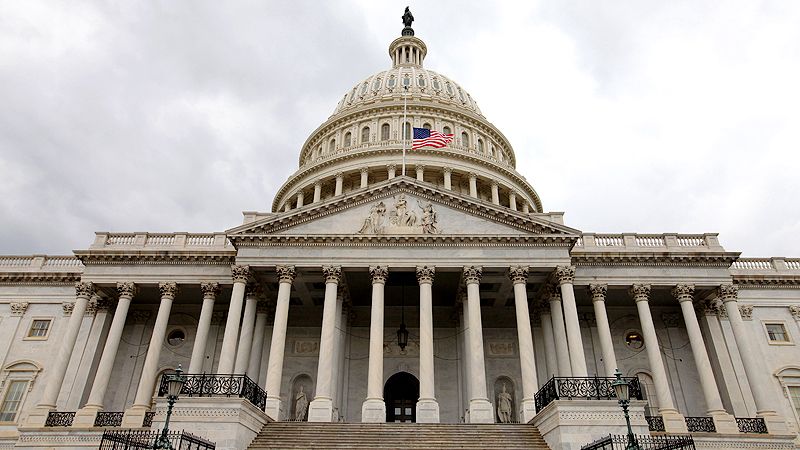
A new Republican-backed tax plan that aims to curb tax breaks for team owners could lead to increased costs for sports fans and make investments in emerging leagues less attractive, tax experts say.
The bill, proposed Monday by the U.S. House of Representatives' chief tax-writing committee, includes a provision that specifically targets professional sports franchises by limiting the amount owners can deduct from their taxes on the team. The bill would cap the amount new owners can write off for intangible assets, such as team names, media rights and player contracts.
Here's what we know about the provision and what it could mean for fans.
How does this proposal apply to sports teams?
When someone purchases a team, the deal often includes physical -- or tangible -- assets, like a stadium or real estate. But the vast majority of the purchase price is made up of intangible assets -- such as the value of the team's brand, broadcast revenue, sponsorships, and so on.
Currently, the law allows owners to deduct the value of intangible assets -- often worth hundreds of millions or billions of dollars -- as a business expense over 15 years. The law, which has applied to sports teams since 2004, is intended to help business owners write off assets that decline in value over time -- like machinery or a fleet of cars.
But team valuations -- largely driven by the worth of their intangible assets -- have skyrocketed over the past two decades. In March, a group led by Bill Chisholm, managing partner at Symphony Technology Group, agreed to buy the Boston Celtics for $6.1 billion, which would be the most paid for a franchise in North American sports history. The current law has allowed owners to write off assets that are largely increasing in value, not losing value.
"This is one of those areas where owning a team can essentially be a tax shelter," said Steven Bank, a professor of business law at UCLA.
What does the proposal say?
The proposal in the Republican tax bill would allow owners to write off only 50% of the value of their intangible assets for teams acquired after the bill becomes law. If the bill passes through Congress and is signed into law, current team owners would keep their existing tax breaks.
(The NBA Board of Governors could approve the Celtics sale as soon as this summer. On the other hand, the estate of late Portland Trail Blazers owner Paul Allen has formally put the team up for sale, and the new provision could affect a buyer if voted into law.)
Andrew Appleby, a tax and business law professor at Stetson University, said the proposed bill is designed to prevent taxpayers from subsidizing billionaires' purchases of sports franchises. Some owners use these deductions to lower, or even eliminate, the taxes they owe on team profits, he said.
What would be the ramifications for owners and fans?
Appleby said the bill could make teams more expensive for prospective buyers.
"I don't know that that is necessarily a deterrent factor because there is a finite number of professional sports franchises, and those values have grown exponentially because of that scarcity," he said.
Robert Boland, a sports law professor at Seton Hall University, said owners could pass the effects of increased tax burdens onto fans via more expensive tickets, merchandise and streaming costs.
"Team owners are already pretty good at getting every dollar out of a franchise," Boland said. "I don't know if they can squeeze much more there, but ultimately, costs that come to owners usually get passed onto fans or consumers in one form or another."
Higher taxes could also drive down the price that potential buyers are willing to pay for teams.
"If the deductions are less, that means they might have to fund more of the team themselves, which means less money for player contracts, less money for amenities in the stadiums, less money to plow into the team, in theory," Bank said.
While new NFL and MLB owners could likely absorb the hit, the proposal could pose larger challenges for upstart and women's sports franchises, where fewer tax breaks could make investment rationales more difficult to justify, said University of North Carolina entrepreneurship professor Chris Mumford.
"That could have a real cooling effect on new and innovative sports franchises" where an even larger share of a team's value is intangible assets, Mumford said. "It's potentially very disadvantageous for new leagues or new league franchises."
What's next?
The proposed tax bill is part of President Donald Trump's sweeping economic plan and must work its way through some procedural measures before facing a vote by the House and U.S. Senate. The Trump administration has previously said it wants to end "all the special tax breaks for billionaire sports team owners."

